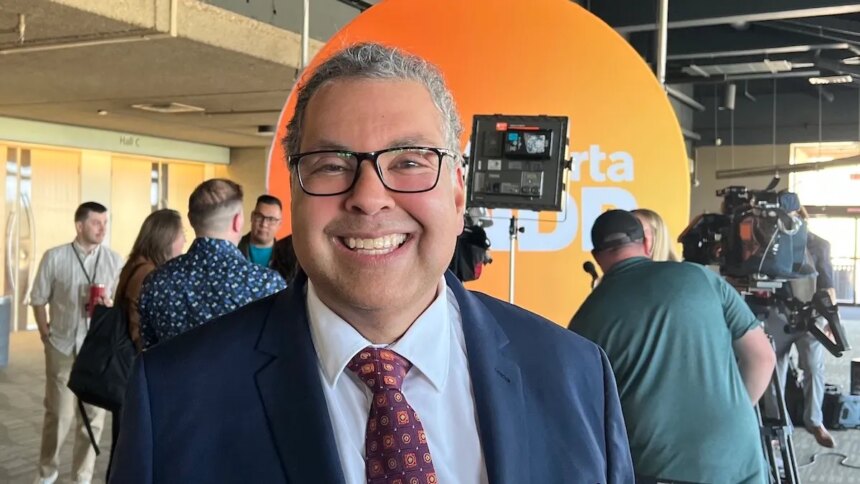Last night’s results in Alberta’s three critical by-elections signal a potential shift in the province’s political landscape, with Rachel Notley’s NDP securing wins in two Calgary ridings while Danielle Smith’s UCP held onto one seat.
The NDP victories in Calgary-Lougheed and Calgary-Elbow mark the first time the party has flipped seats in by-elections since forming government in 2015. These wins cut into the UCP’s legislative majority, dropping their seat count to 46 compared to the NDP’s 38.
“Albertans sent a clear message tonight,” Notley told supporters at a packed Calgary campaign office. “They’re tired of a government that puts ideology ahead of their everyday concerns—healthcare, education, and making life affordable.”
In Calgary-Lougheed, NDP candidate Gurinder Brar defeated the UCP’s Tanya Fir by nearly 900 votes. The riding, previously held by former Premier Jason Kenney until his resignation, has traditionally been a conservative stronghold. Brar, an immigration consultant and community organizer, focused his campaign on healthcare wait times and school classroom sizes.
The NDP’s Amanda Chapman claimed Calgary-Elbow with a more decisive 1,200-vote margin over UCP candidate Cheryl Durkee. Chapman’s campaign emphasized restoring trust in government after what she called “a period of unnecessary chaos” under the current administration.
The UCP managed to hold Camrose, where Richard Jones narrowly defeated the NDP’s Jackie Lovely by approximately 400 votes, according to Elections Alberta’s unofficial results.
Premier Danielle Smith addressed supporters in Camrose, framing the single victory as proof her government maintains rural support. “While we would have preferred different outcomes in Calgary, Albertans in Camrose have affirmed their confidence in our vision for a strong, independent Alberta,” Smith said.
Political analyst Duane Bratt from Mount Royal University sees the results as significant. “By-elections typically favor opposition parties, but flipping two Calgary seats suggests deeper issues for the UCP. Calgary was the battleground that gave Smith her majority in 2023—if that’s eroding, it spells trouble for 2027.”
Public opinion research reflects this shift. A recent Angus Reid poll showed the UCP’s approval rating at 41 percent, down seven points since the 2023 election, while the NDP has climbed to 46 percent support provincially.
The by-elections came amid controversies surrounding the UCP government’s policies on healthcare restructuring and changes to pension management. In particular, the Alberta Pension Plan proposal has faced substantial public skepticism, with a government-commissioned survey showing 76 percent of respondents opposed withdrawing from the Canada Pension Plan.
Calgary Mayor Jyoti Gondek, who has frequently clashed with the provincial government, suggested the results reflect urban concerns. “Calgary voters are looking for solutions to infrastructure challenges, affordable housing, and public safety—not ideological battles with Ottawa,” Gondek told CBC News this morning.
Former Calgary Herald columnist Don Braid noted in his Substack newsletter that “the UCP’s Calgary problem appears to be worsening rather than improving since the general election.”
Voter turnout reached 42 percent across the three ridings, unusually high for by-elections and approaching the 54 percent turnout in the 2023 general election. Elections Alberta officials credited the competitive races and high-profile campaigns for driving engagement.
The results could impact government priorities moving forward. Smith told reporters today that her government would “listen carefully to the concerns expressed by voters” while maintaining commitment to its agenda.
For the NDP, these victories provide momentum after their disappointing 2023 general election performance. “We’re building a coalition that speaks to Albertans’ real priorities,” Notley said. “These wins aren’t just about opposing the current government—they’re about offering a practical, positive alternative.”
Political observers note that both Calgary ridings that flipped have growing populations of young families and newcomers to Alberta—demographics that polling shows have been increasingly concerned about cuts to education and healthcare services.
The legislature reconvenes next week with the new MLAs expected to be sworn in before month’s end. While the overall balance of power remains unchanged with the UCP maintaining a majority, the psychological impact of these results could influence the government’s approach to controversial files like healthcare restructuring and pension reform.
As one Calgary voter told me outside a polling station yesterday: “This might just be a by-election, but it feels like a referendum on whether the government is listening to regular people anymore.” The message from voters suggests many believe it isn’t.






